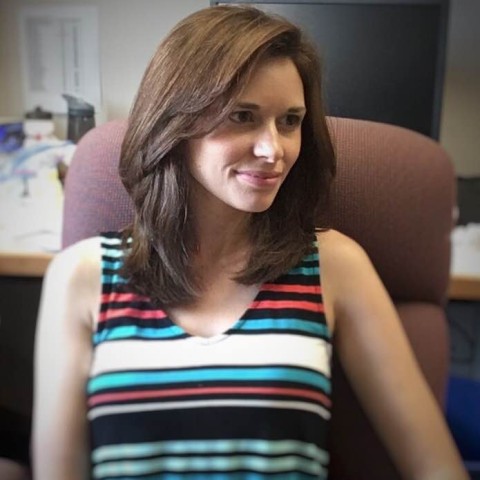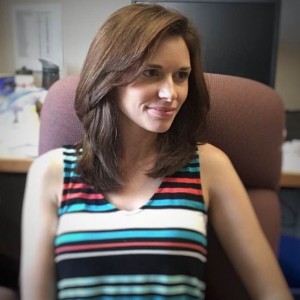
In SmokeLong‘s “Why Flash Fiction?” series, flash fiction writers and editors explore what draws them to the form, from the first time they wrote a piece of flash to why flash resonates with them. In this column, Aubrey Hirsch shares how flash appeals to the writer with a myriad of interests. Submit your own “Why Flash Fiction?” article or other flash-related essays on our Submittable page!
By Aubrey Hirsch
I started writing flash fiction before I knew there was such a thing as flash fiction. My early “stories” (please note the quotation marks) were tiny things. They were Twilight Zone rip-offs, mostly. There’s an alien invasion; everyone must run for cover—only (surprise!) turns out the narrator is a Martian and we’re the aliens who have come to terrorize this unsuspecting planet.
No. You cannot read them.
In my first fiction writing class in college, our weekly assignments had to be 750-1,000 words long. These were meant to be pieces of stories, but mine were finished things. I liked the rhythm of an 800-word story: the establishing shot, the build, the detail, the breathless climax. It was my next fiction writing class that swiftly beat that out of me. Stories, I learned, were between 3,000 and 5,000 words long. No more and, certainly, no less.
I got used to writing longer stories and, ultimately, it’s a skill I’m glad to have. Sometimes a story will come to be that’s just big and when it does, I’m glad I know how to write it. But when I discovered the vibrant and growing world of flash fiction a few years later, I knew that I’d finally found my tribe.
The brevity of the form encourages play. In flash, I can try on ideas or constructions that would wear on a reader in a longer piece: second person point of view, a heavily stylized voice, fairy-tale reimaginings, non-linear structure, lyric prose, and on and on and on. I can experiment. I can be bold. The pieces that fail (and mine fail often) don’t even feel like failures. They feel like stretches, like exercise. It’s easier to relegate a three-page story to eternity in my “documents” folder than to call it quits 20 pages into a 25 page story.
I love flash because I am interested in everything. Beginning a new story gives me permission to explore something that’s been calling to me, or to ruminate on a passing idea. Writing forces me to think not just “about” something new, but “into” it. I have a limitlessly curious mind and an appetite for discovery. When anything can be a story, everything you do is research.
I’m a good way through a novel draft right now and, though I am enamored of my characters, the draft is 60,000 words all about the same thing. Sometimes I look at those 60,000 words and think about the 75 little ideas I could have exploded into existence instead. I like to write about science and gender, parenting and history; I have written stories about circuses, pilots, illnesses, attics, astronauts, war, baseball, pregnancy, snakes. And all of this within the span of about 30 pages. When I look around at the weird wide world, I find I have a lot to say.
I’ve even come full circle and written a real science fiction story. I like to think Rod Serling would be proud. Flash fiction was the perfect form for that, too. It’s a short little piece, but there’s magic in brevity.
 Aubrey Hirsch is the author of Why We Never Talk About Sugar (a short story collection) and This Will Be His Legacy (a flash fiction chapbook). Her work has appeared widely in journals like American Short Fiction, The Rumpus, Third Coast, Hobart, The Los Angeles Review, and The New York Times.
Aubrey Hirsch is the author of Why We Never Talk About Sugar (a short story collection) and This Will Be His Legacy (a flash fiction chapbook). Her work has appeared widely in journals like American Short Fiction, The Rumpus, Third Coast, Hobart, The Los Angeles Review, and The New York Times.
